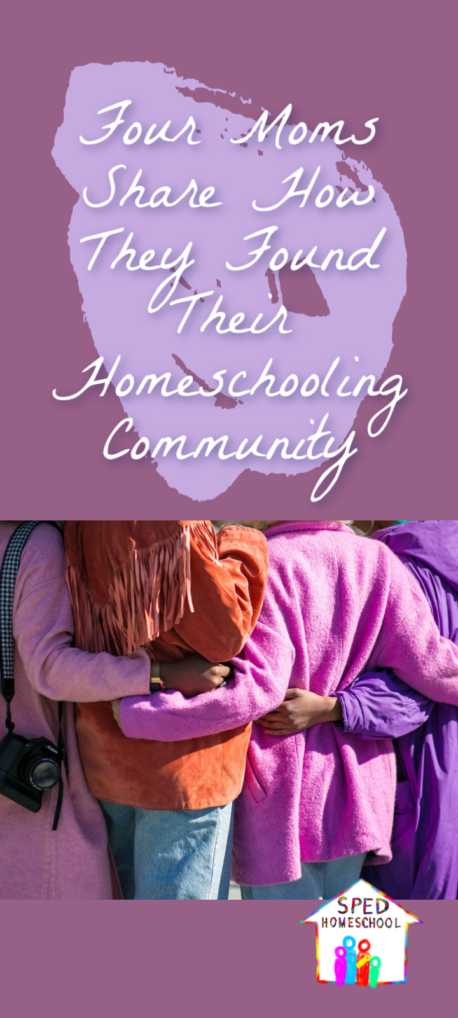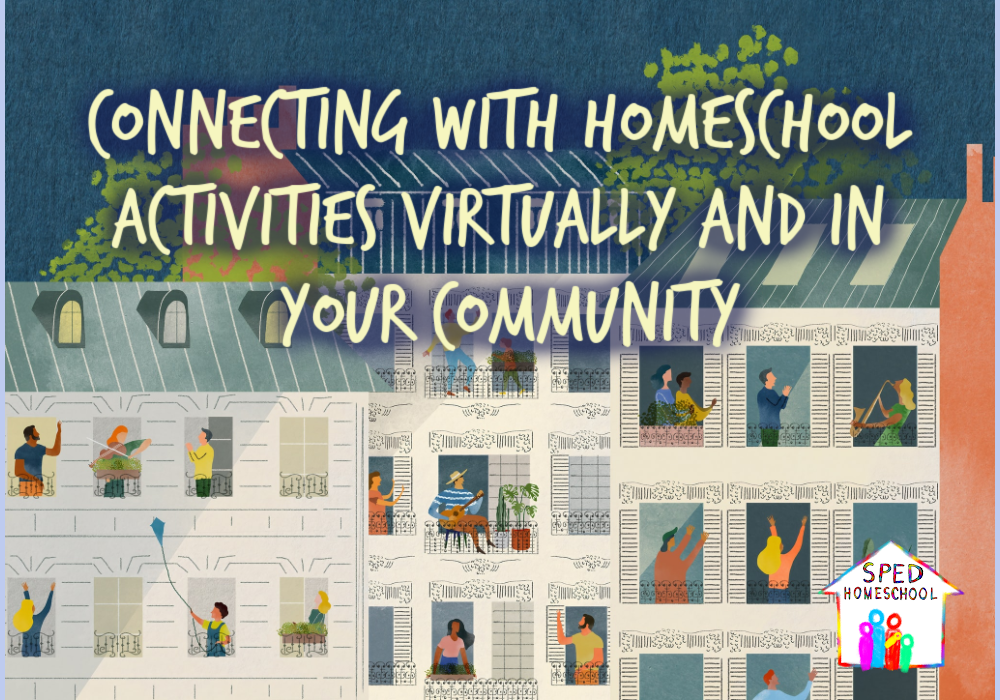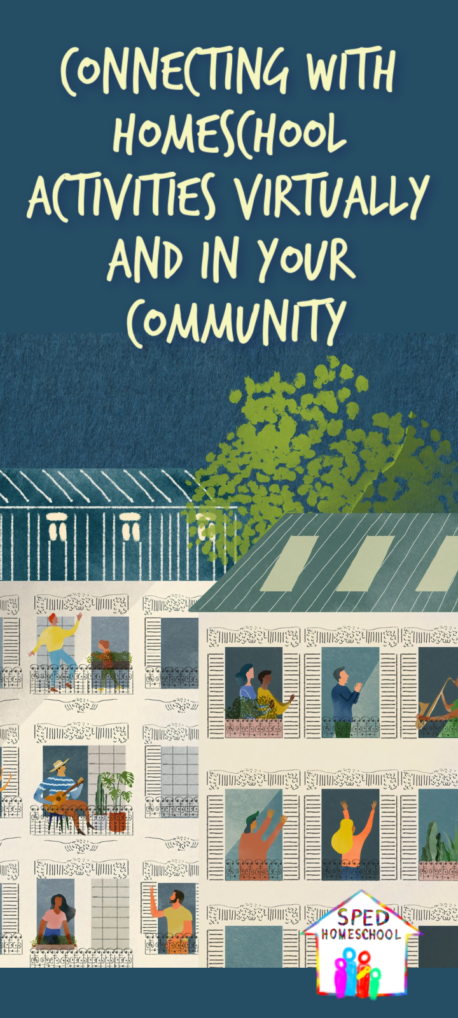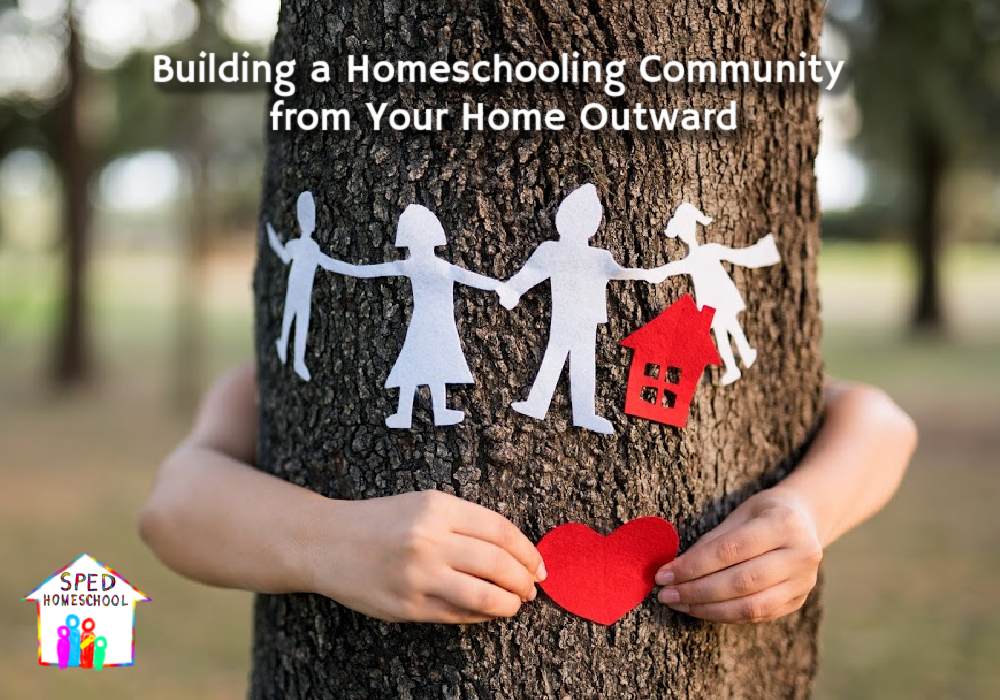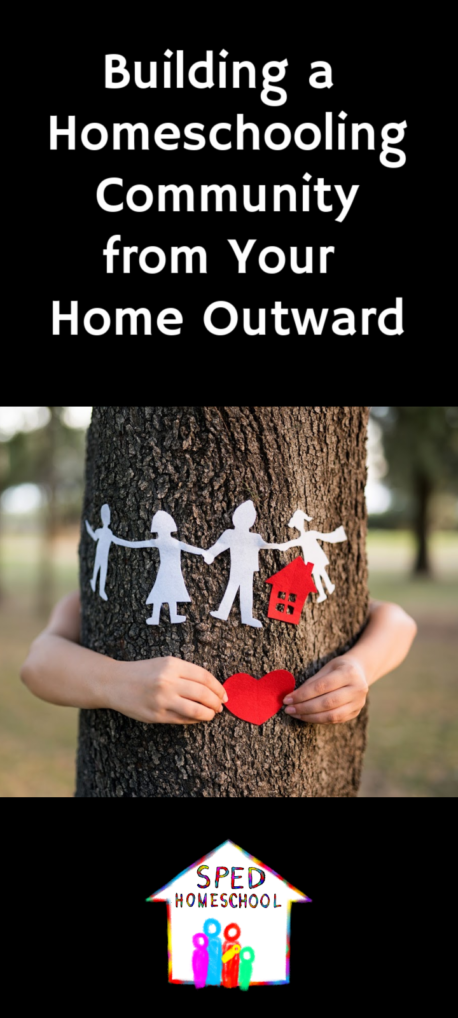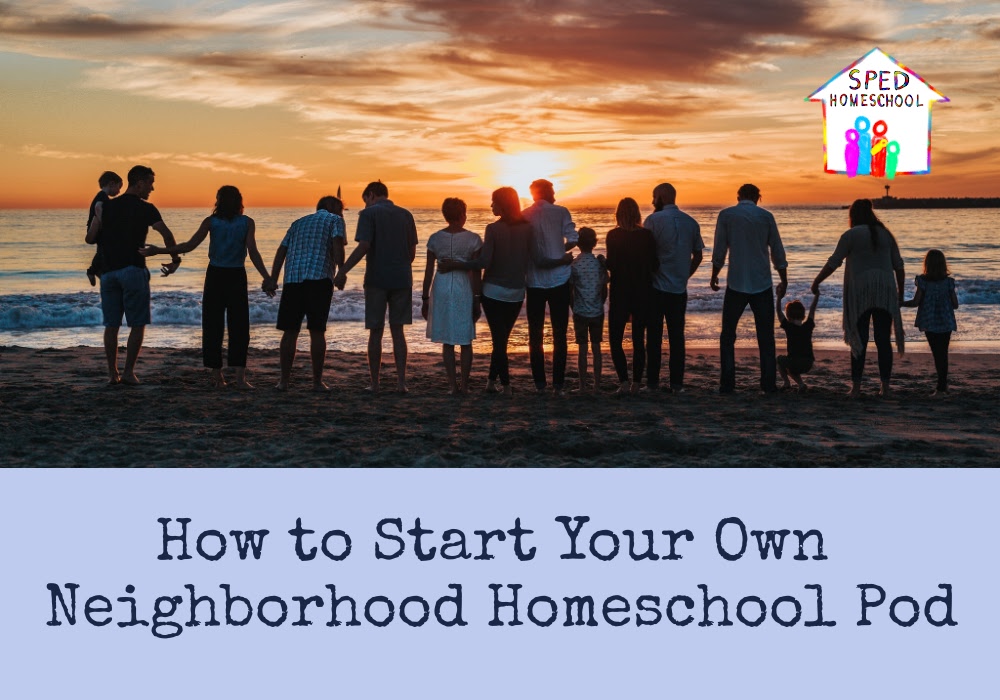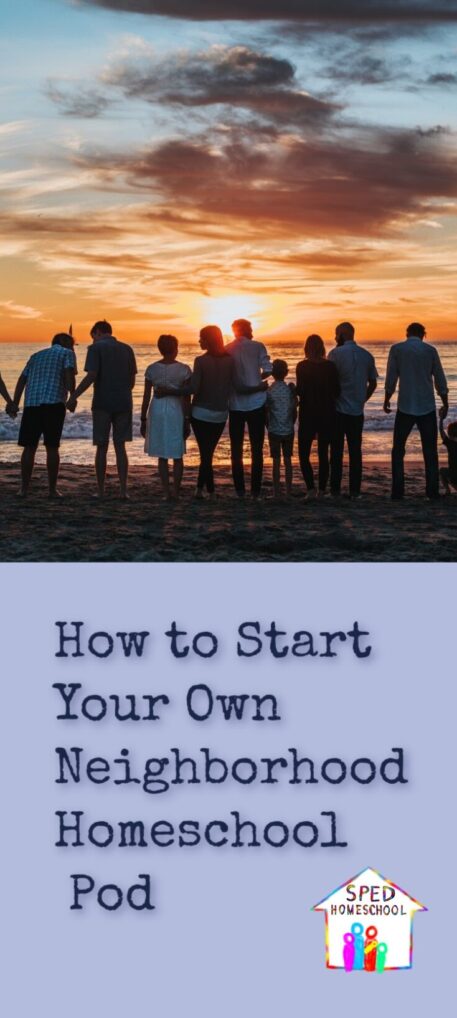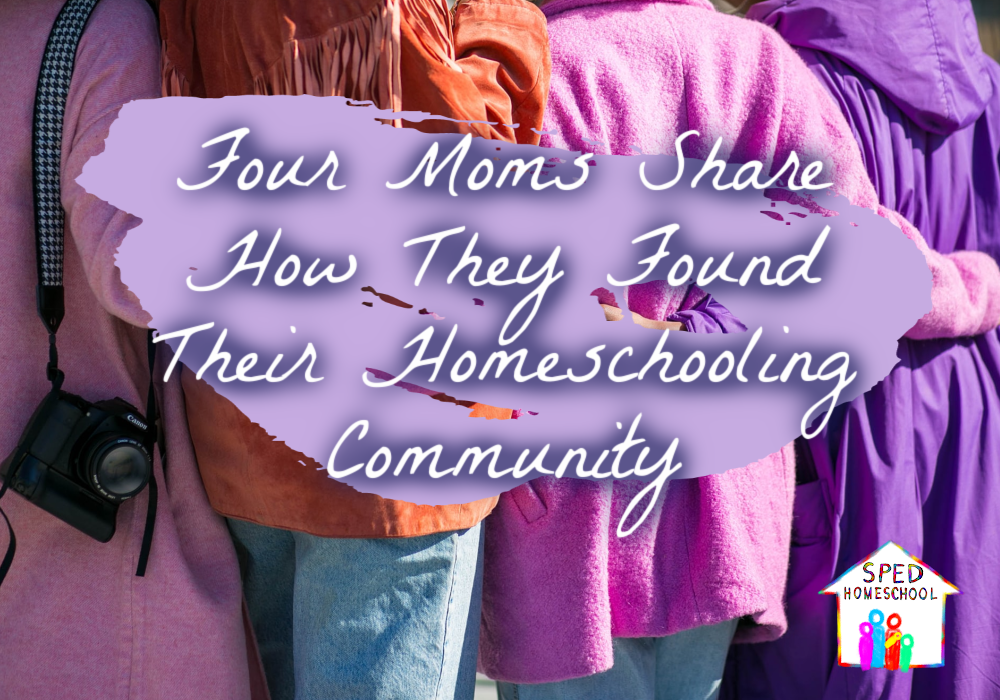
SPED Homeschool Team
How do families find community while homeschooling? Sometimes, finding our extended network of friends comes easily. And sometimes, it’s a challenge. Every month we ask our SPED Homeschool team to share their own experiences navigating through the highs – and lows – of homeschooling. We live in different places with children that are different ages, have different diagnoses, and different interests. And the way we find community is also different.
Finding Our Foundation by Cammie Arn
Building community around here starts with our church and finishes with our homeschool community.
We began this journey as a military family and moved frequently so finding community was hard because it takes time to build relationships with others. Once we separated from the military, it became easier. Having eight children over a twenty-year span has given my family countless opportunities to plug into different groups and organizations. I have been a ballroom dance mom, a theater mom, a choir mom, a speech and debate mom, a Taekwondo mom, a soccer mom, a baseball mom, and a ministry mom. While involved in all these different activities, we were able to find community based on both faith and common interests.
I find the biggest key to building a community for our family started with being willing to meet someone else’s needs first. That is where community truly begins.
Encouraged by Co-Op by Dawn Spence
One thing that I learned early on in homeschooling is that we needed a community. I wanted to walk along those with similar goals and those who could celebrate the good times and pray for me in the bad times. Having these meaningful connections is one way I take care of myself emotionally and physically. Our homeschooling community included our co-op. They were amazing as they embraced my daughter with special needs. That was important for us because whatever we choose to do, it would have to fit everyone. Through co-op, we found friends that have a big part in our community. While our co-op has not met yet this year, our community of homeschooling friends has been a source of constant encouragement. This journey for our family needs and thrives on our community.
Small but Substantial by Lara Lee
It is hard to be involved in everything, but the few groups we are committed to have helped all of us have relationships in a way that is not overwhelming. Even though we are part of the Texas Homeschool Coalition, sometimes therapy schedules and medical appointments make it difficult to attend activities to meet other parents. While we share an interest in homeschooling, I often end up feeling down over the fact that my special needs child is not able to do what other children can do. I end up feeling pressure, discontentment, or that we are behind. I stay in touch with the organization for ideas and resources, but we find our community in other places.
For us, our homeschool communities have come from the various therapies and outside interests my son has. We were able to find therapeutic horseback riding that works with a sliding pay scale. The horses helped my son in so many ways, and we were also to have a group of friends with diverse needs who share this same interest in horseback riding. My son can succeed and even compete at this.
We also have a great church community with a few homeschoolers. The church has provided support, adoptive grandparents, and friends of all ages.
Starting Over Again by Peggy Ployhar
Since we have lived in many places over our 18 years of homeschooling, we have had to build, and rebuild, our homeschooling community. From living in the suburbs surrounded by fellow homeschoolers, to dealing with weather and small-town cultural issues that kept us rather isolated, to being transient as we lived and homeschooled in our RV twice, we found that adapting how we found and created community was different, but nonetheless rewarding for our efforts. In the times of plenty, we chose wisely which groups and activities we should participate in. In times of scarcity, we relished the few friendships God allowed us to entertain and the diversity of community and cultural experiences we enjoyed with those who allowed us to come into their lives. And, in the times when we didn’t have a distinct place to put down our roots for too long, we enjoyed the community of our family and the new experiences and discoveries we were allowed to experience together. We have learned that community is what you make of the relationships you have right in front of you, instead of letting them slip through your fingers in the pursuit of something better, more typical, or what you had envisioned.

